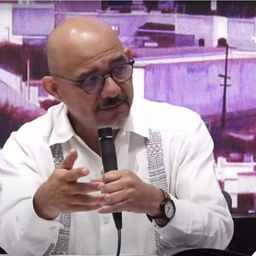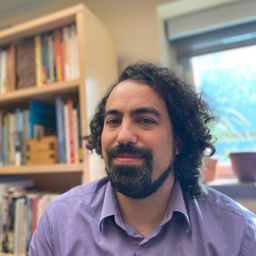
Member of TICCIH international Founding Member of Patrimonio Industrial de México. Conservación, Estudios, Divulgación Professor-Researcher of the Department of Cultural Studies of El Colegio de la Frontera Norte Publications: Contreras, C, 2017, Construcción del patrimonio: la movilización de la memoria colectiva en localidades mineras de Coahuila, México, Intervención. Revista Internacional de Conservación, Restauración y Museología. Año 8, núm. 16 julio-diciembre pp. 70-81. Contreras, C., Martínez, E. y Palacios, L.. (2016). Aproximaciones al patrimonio industrial de Nuevo León. Monterrey: CONARTE Contreras, C. (coord.). (2015). Ladrillos, fierros y memoria. México: El Colegio de la Frontera Norte. Contreras, C. (2015). El paisaje como integrador del patrimonio industrial. En Ladrillos, fierros y memoria(253-275). México: El Colegio de la Frontera Norte.
Documents
Sessions in which Camilo Contreras participates
Tuesday 30 August, 2022
Sessions in which Camilo Contreras attends
Sunday 28 August, 2022
Join the conference organisers and TICCIH board members for a welcome cocktail and some festive words of introduction, in the former forge of the École technique de Montréal, founded in 1909, now part of the Université du Québec à Montréal campus.
Monday 29 August, 2022
During the Industrial Revolution coal was the most important energy source for both homes and industries. At the time, coal mining created strong regional industrial identities and mentalities, as well as industrial images and imaginaries in the eyes and minds of external observers. Such identities and ideas of coal would go on to shape industrial landscapes and communities.The papers presented in this session investigate the social and economic changes that were triggered by ...
This roundtable will examine innovative and creative pedagogical approaches and partnerships that have created opportunities for experiential learning and community engagement, while enabling successful delivery of programs and courses in industrial heritage. In recent years and with the ongoing situation with the COVID-19 pandemic, undoubtedly online and distance teaching and learning are a top priority. The discussions will offer an analytical dialogue on digital learning strategies and ...
Industrialization processes have been global from their very beginning. However, their interpretation still tends to be limited to specific locations or regions, and to specific time periods. Regularly, for example, it is stated that the industrial revolution started in Europe, from where it spread to the world, supposedly bringing technological and social progress to „less developed“ countries. Earlier periods of technology and knowledge transfer processes, that were already in place in t...
Tuesday 30 August, 2022
Wednesday 31 August, 2022
In this lecture, I would like to talk about deindustrialised communities, heritage and memory in the context of right-wing populism. Drawing on studies of memory and heritage, I argue that right-wing populists have cornered the market on talking about the past of deindustrialised communities. They have successfully misrepresented this rich and complex history to fuel rage, resentment, fear and reactionary nostalgia. Indeed, ‘the past’, and in particular the industr...
Thursday 1 September, 2022
The use of industrial heritage is a profoundly important factor in the process of creating a sustainable economic, social, and political future for many communities occupying industrial heritage landscapes. More than ever we recognize the need for such communities to be capable of shaping and expressing their heritage in different forms in the context of current events and issues, and in doing so to inform both contemporary decision-making as well as the way their industrial heritage is re...
This lecture will argue that the landscapes of industrial heritage that can be found in different parts of the world are directly related to the place-specific trajectories of deindustrialization. In other words: the different ways in which deindustrialization impacts on local communities has a direct bearing on the emergence of forms of industrial heritage. I will differentialte between deindustrialization paths and related industrial heritage regimes in a) Anglo-...







